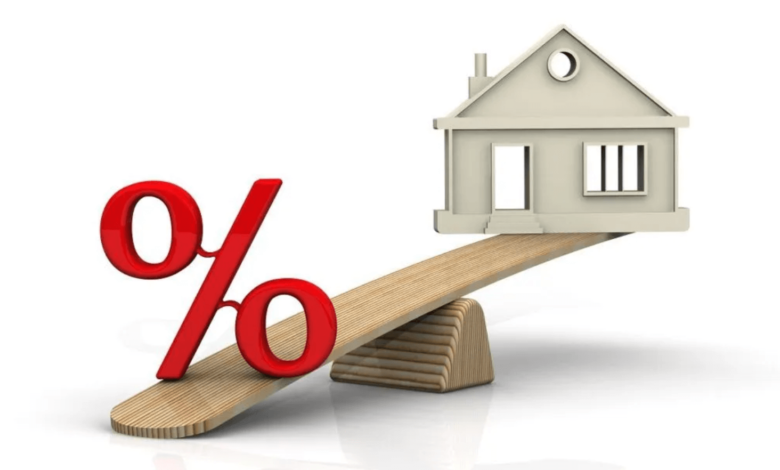Learn All About What is Loan to Value (LTV)?

What is Loan to Value (LTV) that is a crucial financial metric that plays a pivotal role in various lending scenarios, particularly in real estate and loan transactions. Simply put, LTV represents the ratio of an Understanding LTV is essential for both borrowers and lenders as it directly influences the terms of a loan.
Significance in Real Estate
In the realm of real estate, LTV holds significant importance. It is a key factor that lenders consider when evaluating mortgage applications. The LTV ratio is calculated by dividing the loan amount by the property’s appraised value. The lower the LTV, the less risk for the lender, which can result in more favorable loan terms for the borrower.
LTV in Mortgage Lending
In mortgage lending, LTV is a critical determinant of loan terms, including interest rates and down payment requirements. Lenders use LTV ratios to assess the risk associated with a mortgage loan. Potentially leading to higher interest rates or the requirement of a larger down payment from the borrower.
Risk Assessment
The relationship between LTV and risk is a central aspect of its application. Lenders utilize LTV ratios to gauge the risk associated with a loan, considering the potential loss in case of default. For borrowers, maintaining a lower LTV can enhance their financial profile and increase the likelihood of loan approval at favorable terms.
LTV in Auto Loans
The concept of LTV extends beyond real estate and finds application in other lending sectors, such as auto loans. In the context of vehicle financing, LTV represents the ratio of the loan amount to the depreciated value of the vehicle. Lenders use LTV to assess the risk of lending against a depreciating asset, influencing interest rates and loan terms.
LTV in Personal Loans
Even in unsecured personal loans, where no collateral is involved, LTV remains relevant. Lenders assess the borrower’s creditworthiness and may set like credit score and income. Understanding LTV in personal loans is crucial for borrowers aiming to secure the desired loan amount at favorable terms.
Factors Influencing LTV
Several factors influence the LTV ratio. The borrower’s credit score is a key determinant, with higher credit scores often resulting in lower LTV ratios. Additionally, the type of property being financed plays a role, as certain property types may have different risk profiles. Borrowers should be aware of these factors to strategically manage their LTV ratios.
How to Improve LTV Ratio
Maintaining a healthy credit score, saving for a larger down payment, and choosing properties with strong appreciation potential are effective strategies. An improved LTV ratio not only increases the likelihood of loan approval but also opens doors to more favorable loan terms.
LTV vs. Loan to Cost (LTC)
While LTV focuses on the relationship between the loan amount and the asset’s appraised value, Loan to Cost (LTC) considers the cost of acquiring or developing the asset. Understanding the differences between LTV and LTC is crucial in various scenarios, such as real estate investment and development projects.
Case Studies
Examining real-world case studies provides valuable insights into the practical implications of LTV. Successful and unsuccessful examples highlight the significance of managing LTV effectively. These case studies serve as practical guides, offering lessons for borrowers and lenders alike.
Future Trends in LTV
The landscape of lending is continuously evolving, and LTV calculations are not exempt from innovation. Big data, are shaping the future of LTV assessments. Individuals and businesses navigating the lending landscape.
Common Misconceptions About LTV
Misunderstandings about LTV are not uncommon. Addressing common misconceptions and myths can help individuals make more informed financial decisions. By clarifying the true significance of LTV, this section aims to empower readers with accurate information.
The Role of LTV in Economic Downturns
The relationship between LTV and economic downturns is a critical aspect that deserves attention. Understanding how LTV influences financial stability during challenging economic periods provides valuable insights for individuals and policymakers alike. Lessons learned from past economic crises underscore the importance of prudent LTV management. Read more…
Conclusion
In conclusion, comprehending the intricacies of what is loan to value (LTV) is paramount for anyone involved in financial transactions. Whether securing a mortgage, an auto loan, or a personal loan, the impact of LTV on terms and conditions cannot be overstated. By strategically managing and improving LTV ratios, borrowers can enhance their financial profiles and increase their chances of securing loans on favorable terms.
FAQs: Frequently Asked Questions
- What is the ideal LTV ratio for mortgage approval?
- The ideal LTV ratio for mortgage approval typically falls below 80%, as lower ratios indicate lower risk for lenders.
- How does LTV affect interest rates in auto loans?
- Higher LTV ratios in auto loans often result in higher interest rates, reflecting the increased risk for lenders.
- Can a borrower with a low credit score still secure a loan with a favorable LTV?
- While a low credit score poses challenges, maintaining a low LTV can positively influence loan terms.
- What role does property type play in determining LTV?
- Property type influences LTV, with lenders considering factors like property appreciation potential and risk.
- Are there any government regulations regarding LTV limits?
- LTV limits may be influenced by government regulations, especially in the mortgage lending sector. Borrowers should be aware of any applicable regulations.
